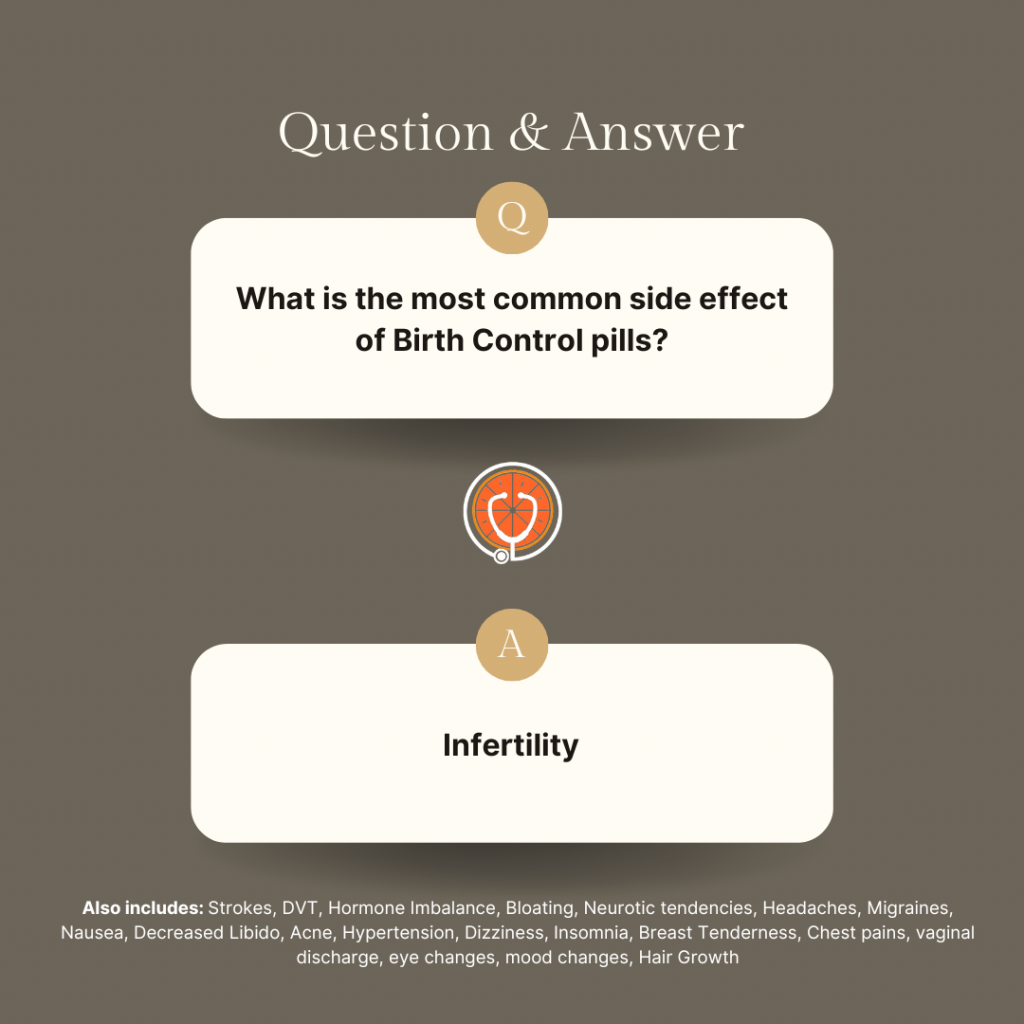Birth control and hormone replacement therapies are known to increase hs-CRP, homocysteine, fibrinogen (1,2,3). Are you testing patient levels with bloodwork? If not, they could be at risk of having a cardiovascular event.
When hs-CRP, homocysteine, fibrinogen are elevated, it could be signalling that the synthetic hormone therapy hasn’t fully cleared out of the body and the risk for strokes, especially by high estrogen intake (4). Furthermore, Deep vein thrombosis (DVT) has been reported as an adverse event for patients receiving combined oral contraceptive (5)
If you know of a person who is thinking about taking synthetic hormone therapy of some sort, they MUST read this book The Pill: Are you sure it’s for you?, by Jane Bennett and Alexandra Pope. It explores the physical and psychological repercussions of taking the pill – from side effects, like weight gain and depression to cancer, to effective alternative methods of contraception.
about taking synthetic hormone therapy of some sort, they MUST read this book The Pill: Are you sure it’s for you?, by Jane Bennett and Alexandra Pope. It explores the physical and psychological repercussions of taking the pill – from side effects, like weight gain and depression to cancer, to effective alternative methods of contraception.
Female patients are at risk of developing symptoms related to drug-induced estrogen dominance, including drug-induced breast cancer, from exogenous female hormone therapy. Learn how to test hs-CRP, homocysteine, fibrinogen and more. Then learn nutritional solutions to support healthy levels.

In 2002, the NIH halted a Women’s Health Initiative study that indicated that long-term estrogen/progestin hormone use posed more health risks than benefits, such as an increased chance of heart attacks, strokes, and breast cancer. (6,7)
- The rate of women having Coronary Heart Disease (CHD) was increased by 29% for women taking estrogen plus progestin.
- Stroke rates were also higher in women receiving estrogen plus progestin (41% increase).
- Women in the group treated with estrogen plus progestin had twofold greater rates of Venous Thromboembolism (VTE), as well as Deep Vein Thrombosis (DVT) and pulmonary embolism individually.
- The total rate of cardiovascular disease, including other events requiring hospitalization, was increased by 22% in the group treated with estrogen plus progestin.
- The HRT-treated group had a 26% increase in invasive breast cancer compared with the group receiving placebo.
The trial was stopped because of elevation in the breast cancer cases had reached the previously set maximum number of women allowed to develop cancer during a clinical trial. They already knew it causes cancer and had set a maximum, yet no maximum is set on the number of real women developing cancer from bcp’s in phase (post marketing) IV trials.
Learn how to catch early systemic inflammation by becoming the lab reading warrior you were meant to be. Many women out there have used synthetic hormones in the past and have never had their inflammation markers measured. Learn how to do it.

